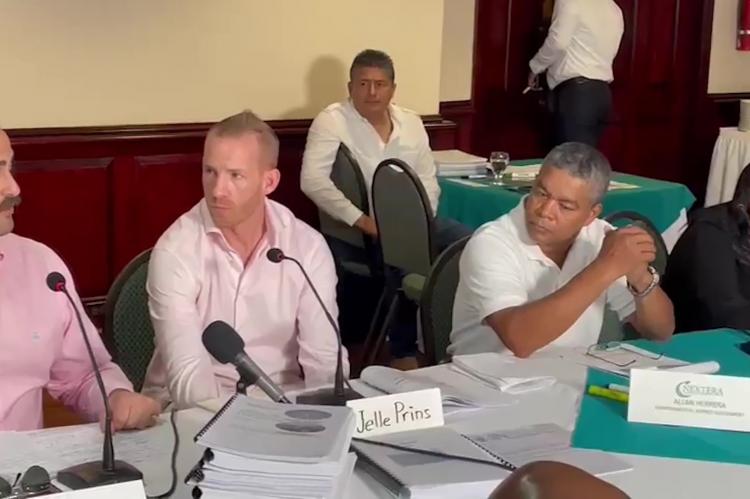Waterloo Holdings Alleges Bias and Lack of Transparency in Government's Port Project Decisions
Waterloo Holdings Alleges Bias and Lack of Transparency in Government's Port Project Decisions
By: Omar Silva, NP Staff Writer
Belize City, Friday, 7th July 2023
Waterloo Holdings, a prominent company aiming to develop a port project, has raised serious concerns about what they perceive as bias and a lack of transparency in the government's decision-making process. The rejection of their environmental clearance and the alleged preferential treatment given to the Port of Magical development by Portico Enterprises have fueled frustration and potential legal action. In this article, we carefully examine the claims made by Waterloo Holdings, highlighting the key points and underlying issues surrounding these contentious projects.
Waterloo Holdings hosted a press conference to address the challenges, setbacks, and alleged discrimination they have faced in advancing their port project. According to the company, their involvement in the project dates back to 2008 when the government initially proposed the idea. However, despite diligently following the necessary legal steps outlined by Belizean law, Waterloo Holdings claims that they have faced intentional delays and a lack of support from the government.
Claims of Intentional Delay and Bias:
Representatives of Waterloo Holdings, including Luis Prieto-Munoz and Jelle Prins, expressed their belief that the government deliberately hindered their project to favor the Port of Magical development proposed by Portico Enterprises. Prieto-Munoz revealed that the government never signed any memorandums of understanding (MOUs) with Waterloo Holdings, despite their persistent efforts. Furthermore, the representatives highlighted the absence of a definitive agreement offered by the government, and the rigorous pursuit of environmental clearance, which was ultimately denied by the National Environmental Appraisal Committee (NEAC).
Alleged Disparity in Treatment:
Waterloo Holdings contends that their project, which aims to enhance national infrastructure and provide economic benefits, has not received equitable treatment compared to the Port of Magical development. They claim that they were asked to meet various standards and requirements, which they diligently fulfilled. However, their environmental clearance was repeatedly denied, while the Port of Magical project, they argue, had a comparatively thinner environmental impact assessment (EIA) and faced fewer obstacles in obtaining approval.
Expert Opinion:
Allan Herrera from Nextera Environmental Consultancy Firm supported Waterloo Holdings' perspective, emphasizing the stark difference in treatment between the two projects. Herrera highlighted the historical precedence of development at the Port of Belize, which commenced even before environmental approval was granted. He criticized the government's decision, considering the extensive efforts made by Waterloo Holdings to address environmental concerns and obtain public feedback.
Calls for Transparency and Investor Confidence:
Waterloo Holdings' representatives expressed their frustration with the lack of transparency and the perceived political nature of the decision-making process. They argued that the approval or denial of projects should be based on scientific and environmental considerations rather than political biases. They also stressed that the government's actions in this case may undermine investor confidence, as potential developers could be deterred by the apparent inconsistencies and bias.
Conclusion:
The claims made by Waterloo Holdings raise important concerns regarding bias and a lack of transparency in the government's handling of port projects. The company alleges intentional delays and preferential treatment given to the Port of Magical development over their own project. Waterloo Holdings, along with experts, questions the fairness of the environmental clearance process and calls for a more scientific and objective approach to project approvals. The outcome of this situation will not only impact the involved parties but also have implications for the country's future development and its ability to attract investors. Transparency and a balanced decision-making process are essential to restore trust and ensure the best outcomes for Belize and its people.
- Log in to post comments

